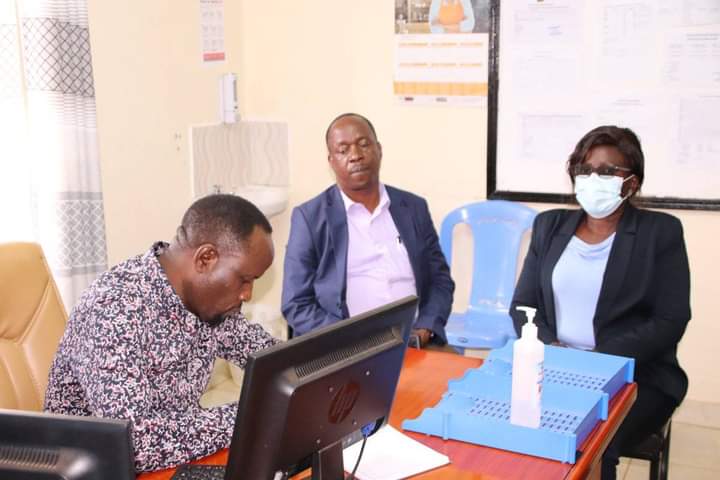Trans Nzoia County Government has directed mortuary attendants of all hospitals against receiving bodies from neighbouring Uganda as part of the measures to contain the spread of the deadly Ebola virus to Kenya.
Area Governor George Natembeya issued the directive in a press briefing in his office at the County headquarters in Kitale town.
“This directive is aimed at ensuring the deadly Ebola virus, which has been reported in Uganda, does not find its way and spread in our country,” said Governor Natembeya.
According to the Governor, his administration led by the health department has set up measures to contain the spread of the Ebola Virus following an outbreak in neighbouring Uganda, which has so far claimed about four persons with several cases of infections already reported.
“We are rallying our people to exercise excess caution by observing high-level hygiene and ensuring that they raise the alarm whenever they feel any symptoms related to the disease,” urged the County boss.
He revealed the devolved unit had designated Kaisagat Health Centre as an isolation and treatment facility where patients who exhibit symptoms related to Ebola virus will be placed.
Natembeya termed the porous nature of the Kenya-Uganda border as a big challenge, which he noted, called for concerted efforts from various stakeholders led by the national and county government agencies.
Speaking at the media briefing, Medical Superintendent in charge of the Mt. Elgon County Hospital, Dr. Emmaniel Wanjala, said all public health officers have been put on high alert and instructed not to admit bodies whose exact cause of death has not been established.
“We have also advised health staff working in evacuation sections like maternity and theatres to remain vigilant and where necessary place patients with cases of excess bleeding on high surveillance,” said Dr. Wanjala.
He also stressed the need by medical officers to make use of personal protective equipment (PPEs) when handling patients to ensure they are not exposed to the virus.
Ebola is a rare but deadly virus that causes fever, body aches, diarrhoea, and sometimes bleeding inside and outside the body.
As the virus spreads through the body, it damages the immune system and organs. Ultimately, it causes levels of blood-clotting cells to drop. This leads to severe, uncontrollable bleeding.
The disease was known as Ebola hemorrhagic fever but is now referred to as the Ebola virus.
Health data indicates the deadly virus kills up to ninety percent of people who are infected.
The death toll from Ebola in Uganda had reportedly risen to four, while the number of confirmed Ebola cases rose to 16 by Monday.
On Tuesday last week, the country confirmed the first fatality from the disease after a 24-year-old man died in Mubende District, Central Uganda.
By Maurice Aluda




